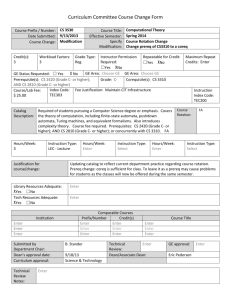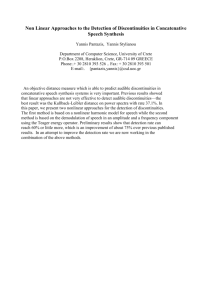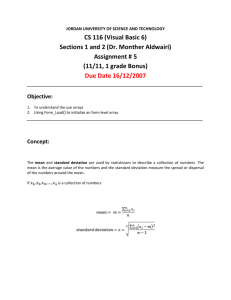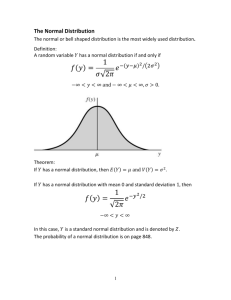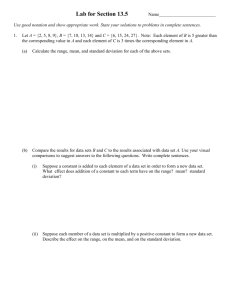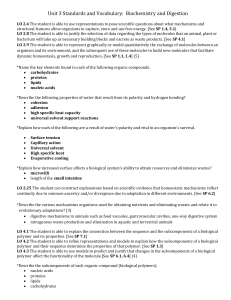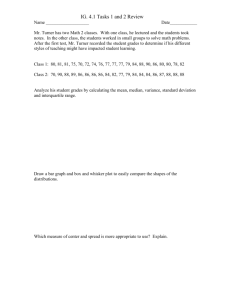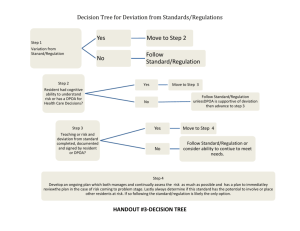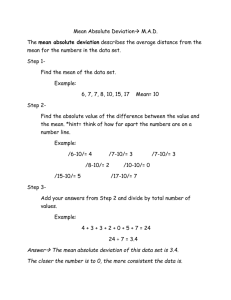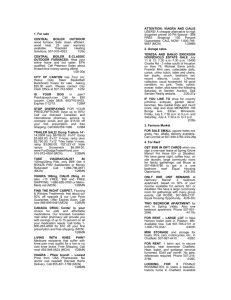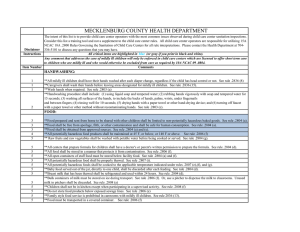Quiz 2 Key
advertisement
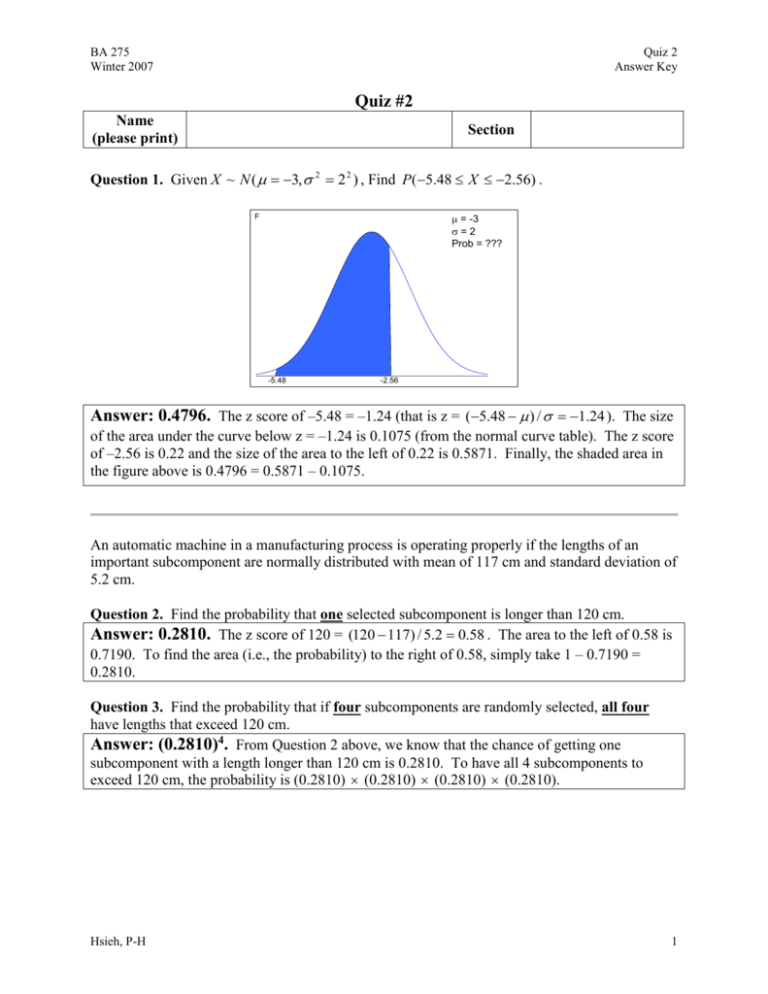
BA 275 Winter 2007 Quiz 2 Answer Key Quiz #2 Name (please print) Section Question 1. Given X ~ N ( 3, 2 2 2 ) , Find P(5.48 X 2.56) . = -3 =2 Prob = ??? F -5.48 -2.56 Answer: 0.4796. The z score of –5.48 = –1.24 (that is z = (5.48 ) / 1.24 ). The size of the area under the curve below z = –1.24 is 0.1075 (from the normal curve table). The z score of –2.56 is 0.22 and the size of the area to the left of 0.22 is 0.5871. Finally, the shaded area in the figure above is 0.4796 = 0.5871 – 0.1075. An automatic machine in a manufacturing process is operating properly if the lengths of an important subcomponent are normally distributed with mean of 117 cm and standard deviation of 5.2 cm. Question 2. Find the probability that one selected subcomponent is longer than 120 cm. Answer: 0.2810. The z score of 120 = (120 117) / 5.2 0.58 . The area to the left of 0.58 is 0.7190. To find the area (i.e., the probability) to the right of 0.58, simply take 1 – 0.7190 = 0.2810. Question 3. Find the probability that if four subcomponents are randomly selected, all four have lengths that exceed 120 cm. Answer: (0.2810)4. From Question 2 above, we know that the chance of getting one subcomponent with a length longer than 120 cm is 0.2810. To have all 4 subcomponents to exceed 120 cm, the probability is (0.2810) (0.2810) (0.2810) (0.2810). Hsieh, P-H 1 BA 275 Winter 2007 Quiz 2 Answer Key Question 4. Find the probability that if four subcomponents are randomly selected, their mean length exceeds 120 cm. Answer: 0.1251. The sampling distribution of the sample mean is a normal distribution. What is the mean (location) of this normal distribution? It is the same as the population mean (117 cm). What is the standard deviation ( X , spread) of this normal distribution? It is the population standard deviation () divided by the squared root of the sample size (n), that is X / n 5.2 / 4 2.6 . So, how likely do you get a sample mean ( X ) that exceeds 120 cm? Find the z score of 120 cm with respect to the normal distribution of the sample mean, z (120 117) / 2.6 1.15 . Look up the normal curve table and you will get 0.8749 (this is the size of the area to the left of z = 1.15). To answer the question, take 1 – 0.8749 = 0.1251. Question 5. You, as an inspector, randomly selected 25 subcomponents and measured their mean length to be 120 cm. Based on your sample, do you think the machine is still in control (i.e., the machine is still producing subcomponents with a mean length of 117 cm), or is already out of control (the mean length is no longer 117 cm as required)? Support your argument with numerical evidence. Again, the sampling distribution of the sample mean is normal with a mean 117 cm and a standard deviation X / n 5.2 / 25 1.04 . What is the chance of getting a sample mean exceeding 120 cm? The z score of 120 cm, with respect to this normal distribution, is z (120 117) / 1.04 2.88 . Use the normal curve table and find the probability to be 0.9980. In other words, given the mean 117 cm, the chance of getting a sample mean greater than 120 cm is 1 – 0.9980 = 0.0020, a small chance. Therefore, the process is more likely to be out of control. Hsieh, P-H 2
